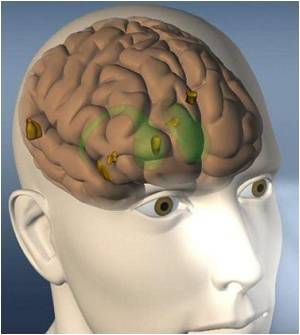A new study says that people who take dopamine agonist medications for Parkinson's disease tend to display traits of compulsive behaviour like pathological gambling

Preliminary estimates of impulse control disorders in this population range from 1.7 percent to 6.1 percent for gambling, 2 percent to 4 percent for compulsive sexual behavior and 0.4 percent to 3 percent for compulsive buying.
Dr. Daniel Weintraub, of the University of Pennsylvania, Philadelphia, and Philadelphia Veterans Affairs Medical Center, and colleagues studied 3,090 patients being treated for Parkinson's disease at 46 movement disorder centers in the United States and Canada.
And they identified impulse control disorders in 13.6 percent of patients, including gambling in 5 percent, compulsive sexual behavior in 3.5 percent, compulsive buying in 5.7 percent, binge-eating disorder in 4.3 percent and two or more of those in 3.9 percent.
The disorders were more common in individuals taking dopamine agonists compared with patients not taking dopamine agonists (17.1 percent vs. 6.9 percent).
Additional variables linked with these disorders included the use of levodopa, another therapy for Parkinson's disease; living in the United States; being younger or unmarried; smoking cigarettes; and having a family history of gambling problems.
Advertisement
Dopamine agonists are increasingly used to treat other conditions, including restless legs syndrome and fibromyalgia, noted the authors.
The study has been published in the May issue of Archives of Neurology, one of the JAMA/Archives journals.
Source-ANI
RAS









